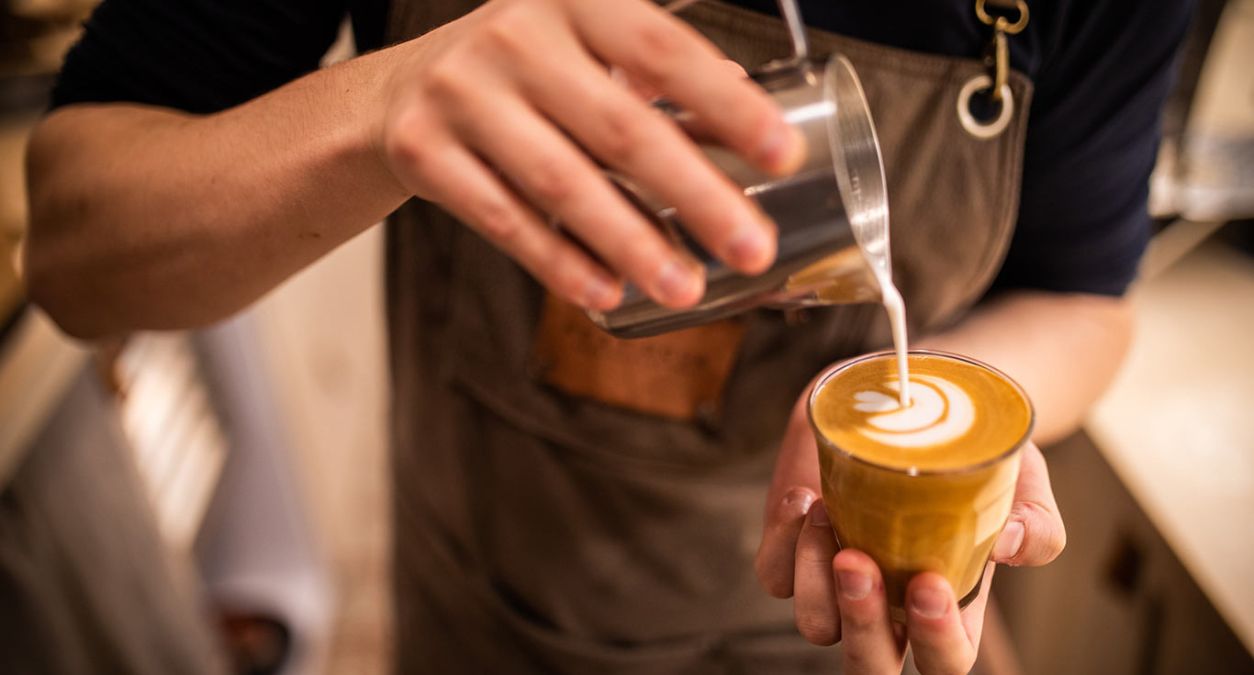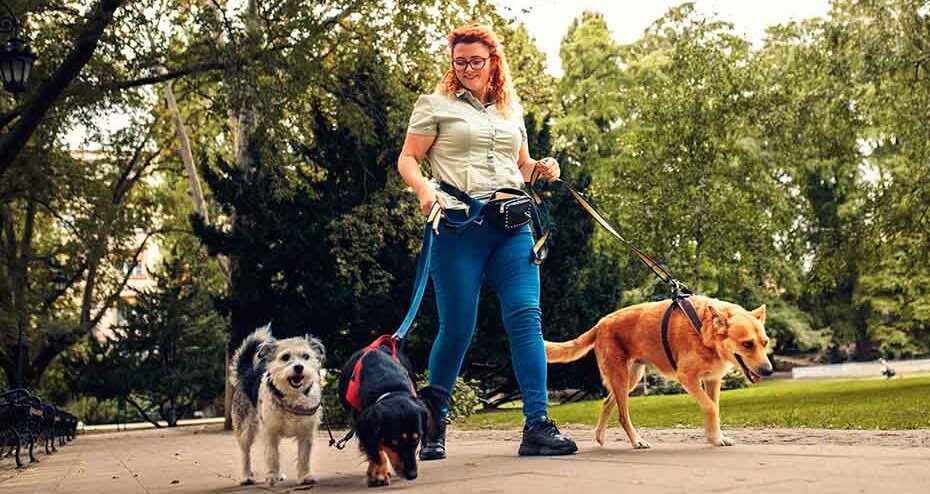Table of contents
Table of contents
Mobile coffee businesses are booming across the UK—and for good reason. As more people crave convenience and quality coffee on the go, mobile setups are becoming a smart, flexible alternative to the traditional coffee shop.
In fact, while in-store coffee sales dropped by 6% in 2023*, mobile coffee sales are climbing. You’ll now find coffee vans, carts, and bikes popping up everywhere—from busy urban streets to local markets and lively festivals.
Whether you’re a trained barista ready to go solo or just a coffee enthusiast with a dream, starting your own mobile coffee business could be your perfect blend of passion and profit.
In this guide, we’ll walk you through everything you need to know—from licensing and legalities to equipment, marketing, and making it profitable—so you can confidently launch your mobile coffee venture.
What is a Mobile Coffee Business, exactly?
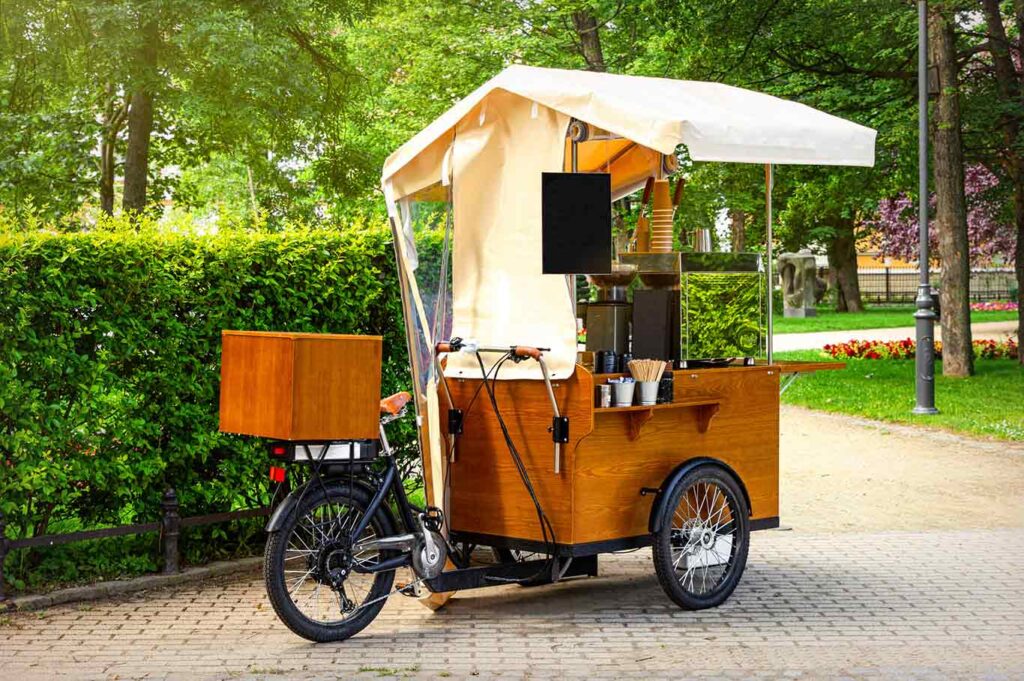
A mobile coffee business involves serving high-quality coffee and related beverages from a portable setup, allowing operators to reach customers at various locations, such as busy streets, events, and festivals.
Unlike traditional coffee shops, mobile setups offer the significant advantage of lower startup and operational costs, greater flexibility in choosing and changing locations, and the ability to directly engage with a diverse customer base.
Types of Mobile Coffee Setups:
- Coffee Carts – Compact, low-cost, and easy to set up in tight spaces
- Coffee Vans – More space for equipment and supplies, great for festivals or high-traffic zones
- Coffee Bikes – Eco-friendly, eye-catching, and ideal for green spaces or events
Each has its own vibe, and your choice depends on your budget, goals, and where you plan to trade.
Do your market research
Before buying a van or designing a logo, it’s crucial to understand:
- Who your customers will be (commuters, office workers, event-goers?)
- Where they are and when they want coffee
- Who else is out there (and how you can stand out)
This is your foundation. With solid research, you’ll avoid costly mistakes and be better prepared to serve the right people in the right places.
Nail Your USP (Unique Selling Point)
What makes you different? Think:
- Organic or locally roasted beans?
- Eco-friendly cups?
- Killer homemade pastries?
Figure out what will make people choose you over the next van down the street.
Build a business plan you’ll actually use
Don’t worry—this isn’t about writing a novel. But you do need a clear plan. This planning phase ensures that you have a well-defined roadmap for launching and growing your mobile coffee business. Here’s what to include:
- Your business goals – Short and long term
- Startup and operating costs – Equipment, licenses, supplies, fuel, etc.
- Projected earnings – Be realistic, but optimistic
- Marketing strategy – How you’ll attract and keep customers
Your plan helps you stay focused—and it’s also key if you need funding or want to apply for a loan or grant.
Sort out legal stuff & licensing
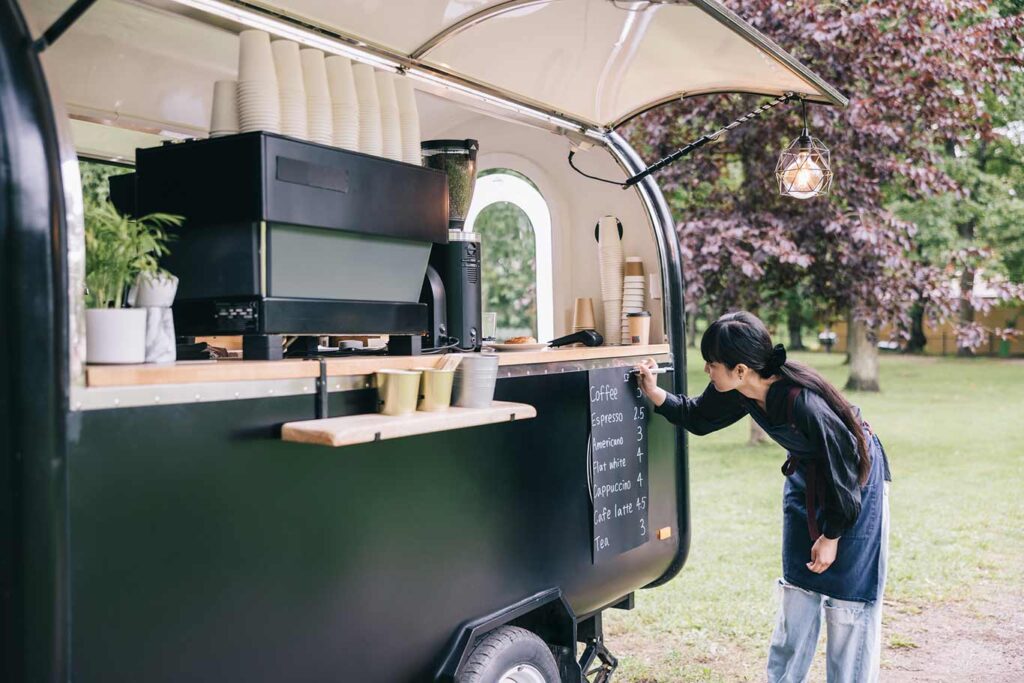
Let’s look at the significant licences you will need to operate legally, including how to apply for the licence and the approximate cost and timeframe to apply.
Street Trading Licence
Required for selling goods in public spaces. This licence is typically issued by the local council and allows you to legally operate in designated areas.
Apply through your local council’s website or office. You’ll need to provide details about your business, the type of products you’ll sell, and where you intend to trade.
Costs vary by location and can range from £100 to £1,000 annually. Processing times can take anywhere from a few weeks to a couple of months.
Food Business Registration
Registering as a food business is mandatory for any business preparing, cooking, storing, handling, distributing, supplying, or selling food.
You can register with your local environmental health department, which can often be done online, providing information about your business operations and premises. This is generally free of charge, but registration should be completed at least 28 days before you start trading.
Waste Disposal and Recycling Permits
Ensure that you manage waste responsibly, including proper disposal and recycling of coffee grounds, cups, and other waste materials.
Contact your local council to understand the specific requirements and apply for the necessary permits or waste collection services. Costs depend on the volume and type of waste. Fees may be incurred for special waste collection services, and processing times vary by council.
Follow Health, Safety & Hygiene Rules
Adhering to health and safety regulations should be a high priority for a mobile coffee business. Customers will want to see excellent ratings, which will in turn help to increase your credibility and reputation and develop loyalty.
Food Hygiene
Key regulations to comply with include maintaining high standards of food hygiene, which involves proper storage, handling, and preparation of coffee and related products to prevent contamination.
Equipment Safety
Equipment safety is also critical; regular maintenance and checks are necessary to ensure that all machinery operates correctly and safely.
Staff Training
Comprehensive staff training in both food safety practices and emergency procedures is essential to uphold these standards consistently.
Regular inspections by local health authorities not only enforce compliance but also provide opportunities to address potential issues proactively, ensuring that the business maintains a reputation for quality and safety.
Set up your coffee van (or cart or bike)

We’ve highlighted a checklist of essential equipment you’ll need to get started.
- Coffee Machine: A high-quality espresso machine suitable for mobile use.
- Coffee Grinder: A reliable grinder for fresh coffee beans.
- Water Filtration System: Ensures clean, high-quality water for brewing.
- Power Supply: Generator or battery system to run equipment.
- Storage Solutions: Cabinets or bins for storing coffee beans, cups, and other supplies.
- Refrigeration Unit: For storing milk, cream, and other perishable items.
- POS System: A mobile point-of-sale system for processing payments.
- Cash Register/Drawer: For handling cash transactions securely.
- Serving Utensils: Cups, lids, stirrers, and napkins.
- Cleaning Supplies: Brushes, cloths, sanitisers, and waste disposal bins.
- Milk Frother: For creating lattes, cappuccinos, and other milk-based drinks.
- Hot Water Dispenser: For making teas and other hot beverages.
- Signage and Menus: Clearly display your offerings and prices.
- Portable Sink: For handwashing and cleaning utensils.
- Canopy or Umbrella: Protection from weather conditions.
- Temperature Control Solutions: Heaters or coolers, depending on climate needs.
- Seating Arrangements: Optional, but helpful if space allows.
Marketing your mobile coffee business
Creating a strong marketing strategy is essential for promoting a mobile coffee business and attracting customers. By focusing on these marketing strategies, you can effectively promote your mobile coffee business and differentiate yourself in a competitive market.
Social Media
Establishing a strong social media presence on platforms like Instagram, Facebook and TikTok allow you to showcase your offerings, engage with customers, and build a loyal following.
Local Events
Participating in local events and festivals provides excellent opportunities to reach a diverse audience and generate buzz around your business.
Local Partners
Forming partnerships with local businesses, such as offices, shops, or community centres, can expand your reach and attract regular customers. Building a loyal customer base requires consistent quality, excellent customer service, and personalised interactions.
Branding
Furthermore, branding plays a crucial role in creating a memorable experience for customers, from eye-catching logos and signage to unique packaging and consistent messaging.
Is a coffee van profitable?
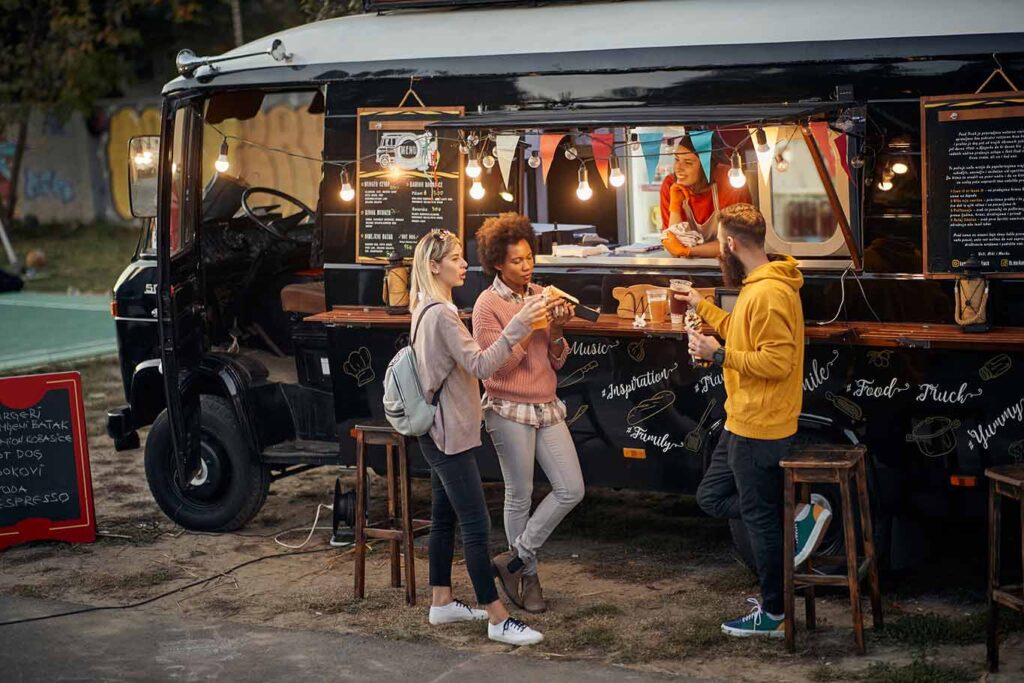
Short answer: Yes, if managed well.
With fewer overheads than a fixed café, profit margins can reach 60–70%. Let’s break it down:
- 100 cups/day x £3 = £300/day
- 20 days/month = £6,000/month revenue
- After deducting costs (beans, fuel, maintenance, etc.), you could pocket a healthy margin.
Pro Tips to Boost Profit:
- Buy in bulk for better prices
- Plan routes to save on fuel
- Offer event catering or office deliveries
- Go green—eco-conscious sells
Top customers and their preferences
The customer base for a mobile coffee business is diverse and includes various demographics with distinct preferences. Understanding and catering to these diverse preferences are essential for attracting and retaining loyal customers in the competitive mobile coffee market.
Commuters
Commuters rushing to work often seek quick and convenient coffee options, preferring grab-and-go beverages that can be enjoyed on the move.
Office workers
Office workers appreciate the convenience of a nearby coffee vendor, often opting for specialty blends or gourmet options to kickstart their mornings or fuel their afternoon productivity.
Event attendees
Event attendees at festivals, markets, or corporate gatherings crave quality coffee to enhance their experience, with preferences ranging from traditional espresso drinks to trendy specialty brews.
Sustainability seekers
Eco-conscious consumers value sustainability and may seek out mobile coffee businesses offering environmentally friendly practices, such as reusable cups and ethically sourced beans.
Insurance for your Mobile Coffee Business
Getting the right insurance is a must when running a mobile coffee business—it protects you, your equipment, your staff, and your customers.
Here’s what to consider:
- Public Liability –Cover for injuries or property damage caused to others (e.g. a customer trips near your setup).
- Product Liability – Covers claims if someone becomes ill or suffers harm from something you’ve served.
- Employers’ Liability – Legally required if you have staff; covers injuries or illnesses caused while working for you.
- Catering Equipment & Stock – Cover for equipment and stock, including frozen goods—helping protect against damage, loss, or theft.
- Other Extras – Cover for trailers, cash in transit, and more.
Having the right cover gives you peace of mind—so you can focus on serving great coffee, not unexpected costs.
Read more on why Catering Business need insurance.
So – is a mobile coffee van a good business?
Ultimately the decision is yours but let’s look at the pros and cons of a mobile coffee business to help you measure up whether it’s worth it.
| Pros | Cons |
| Lower startup costs | Weather dependency |
| Flexibility in choosing locations | Limited space for equipment and supplies |
| Ability to reach diverse customer base | Competition for prime locations |
| Reduced overhead expenses | Equipment maintenance on-the-go |
| Potential for high profitability | Limited seating options for customers |
| Mobility allows for testing multiple locations | Reliance on foot traffic and events |
| Opportunity for creative branding and unique experiences | Limited capacity for growth compared to stationary coffee shops |
Protect your coffee business with Caterers Insurance
One of the best things about launching a mobile coffee business is the low upfront cost and the freedom to operate from different locations. It’s a relatively low-risk way to start your own venture, with plenty of room to grow at your own pace.
But even with a lean setup, unexpected problems can crop up. That’s why having the right catering insurance is essential. While you focus on serving great coffee and building customer relationships, Protectivity can help protect your business from costly setbacks.
Our catering insurance includes core cover like public and product liability—ideal for protecting you if someone is injured or becomes ill as a result of your service. If you employ staff, employers’ liability can be added too. You can also choose extra protection for your equipment, stock, and frozen goods in case of damage, theft or refrigeration failure. If you operate from a trailer, cover is available for that too, along with optional protection for any business cash you carry or store.
With flexible options tailored to what you actually need, it’s a smart step towards running your business with confidence.
Get a quote today and stay focused on what you do best.
Get Caterers Insurance from Protectivity
*Mintel.com – UK Coffee Shop Industry Trends and Opportunities
*Disclaimer – This blog has been created as general information and should not be taken as advice. Make sure you have the correct level of insurance for your requirements and always review policy documentation. Information is factually accurate at the time of publishing but may have become out of date.
Last updated by




